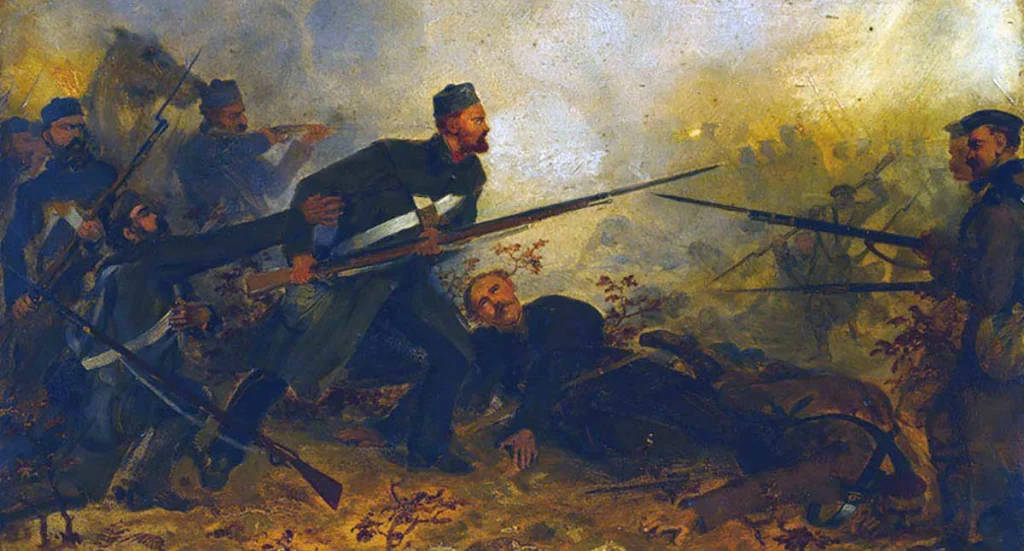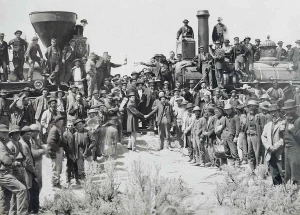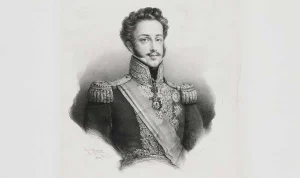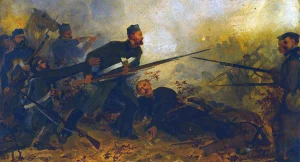He is a name that echoes through millennia: Caesar. A brilliant general, a cunning politician, a charismatic leader, and ultimately, a man whose ambition reshaped the world and led to his own bloody demise. Gaius Julius Caesar’s life was a whirlwind of audacity, conquest, and controversy that marked the death throes of the Roman Republic and heralded the birth of its Empire. Join us as we trace the incredible arc of his rise to unparalleled power and his dramatic, fatal fall.
📜 Early Life and Burning Ambition
Born around 100 BC into the gens Julia, an old patrician family that claimed descent from the goddess Venus, Caesar wasn’t initially destined for the absolute pinnacle of Roman power. While noble, his family lacked the immense wealth and recent political clout of others. However, young Caesar possessed assets far more valuable: a sharp intellect, undeniable charisma, and a burning ambition that set him apart.
His early life wasn’t without peril. Connected by marriage to Gaius Marius, a powerful general and politician, Caesar found himself on the wrong side of the dictator Sulla during a bloody civil war. Refusing Sulla’s order to divorce his wife, Cornelia, Caesar was forced into hiding, narrowly escaping the proscription lists that condemned many Roman nobles. This early brush with danger likely forged his resilience and perhaps his ruthlessness.
A famous anecdote from his youth tells of his capture by pirates while sailing in the Aegean Sea. Held for ransom, Caesar reportedly charmed and even intimidated his captors, joking that he would return and crucify them all once freed – a promise he chillingly fulfilled. Whether entirely true or embellished, the story captures the essence of Caesar: audacious, confident, and utterly determined. He received a top-tier education in rhetoric and oratory, skills crucial for any aspiring Roman politician. From early on, it was clear Caesar wasn’t content to merely exist; he aimed to dominate.

🏛️ Climbing the Ladder: The Cursus Honorum
In Rome, the path to power was structured: the Cursus Honorum, a sequence of public offices one had to hold to reach the top. Caesar embarked on this climb with calculated precision. He served as a military tribune, gaining early experience. As Quaestor (a financial administrator) in Spain, he reportedly wept before a statue of Alexander the Great, lamenting that Alexander had conquered the known world by an age when he himself had achieved relatively little.
Returning to Rome, Caesar became Aedile, responsible for public buildings and games. He excelled, staging lavish gladiatorial contests and public works that won him immense popularity with the common people – the plebeians. However, this came at a cost: he plunged himself into massive debt, essentially gambling his entire future on achieving higher office where he could recoup his expenses (and then some).
His election as Pontifex Maximus, the chief high priest of Rome, was a masterstroke. Though a religious office, it held significant political influence and prestige, and crucially, it came with an official residence in the Roman Forum, placing him at the very heart of Roman political life. He continued his ascent, becoming Praetor (a judicial and military commander role) before setting his sights on the ultimate prize: the Consulship.
🤝 The First Triumvirate: A Pact of Power
Caesar knew he couldn’t reach the Consulship alone. The Roman Senate, dominated by conservative aristocrats known as the Optimates, distrusted his popular appeal and ambition. To overcome this opposition, Caesar forged an informal, secret alliance in 60 BC with two of Rome’s most powerful men:
- Gnaeus Pompeius Magnus (Pompey the Great): Rome’s most celebrated general, adored by the public but often frustrated by the Senate’s refusal to ratify his arrangements in the East or grant land to his veteran soldiers.
- Marcus Licinius Crassus: Reputedly the wealthiest man in Rome, who had crushed the Spartacus slave revolt but craved the military glory and political respect Pompey enjoyed.
This alliance, later dubbed the First Triumvirate, was a pact of mutual convenience. Crassus provided the finances, Pompey the military clout and veteran support, and Caesar the political acumen and popular appeal to push their collective agendas through the often-obstructionist Senate. Together, they were unstoppable. Caesar secured the Consulship for 59 BC, and using intimidation and bypassing the Senate when necessary, he pushed through legislation favouring Pompey’s veterans and Crassus’ financial interests, cementing their loyalty and setting himself up for his next, monumental step.
⚔️ Conquest of Gaul: Forging an Empire and an Army
Following his Consulship, Caesar secured a proconsulship (governorship) over strategically important provinces, including Cisalpine Gaul (northern Italy) and Illyricum (Balkan coast), later adding Transalpine Gaul (southern France). Crucially, this governorship came with command over several legions. From 58 to 50 BC, Caesar launched a series of brilliant, brutal, and ultimately successful military campaigns known as the Gallic Wars.
He systematically conquered the vast territories of Gaul (roughly modern-day France, Belgium, parts of Switzerland, Netherlands, and Germany west of the Rhine). He defeated numerous tribes, crossed the Rhine into Germania, and even launched two expeditions to Britain. Caesar proved himself a military genius, known for his speed, decisive action, engineering skill (like building bridges across the Rhine), and his ability to inspire unwavering loyalty in his soldiers, who he often led from the front.
He meticulously documented his campaigns in his Commentarii de Bello Gallico (Commentaries on the Gallic War). Written in clear, concise Latin, these accounts were ostensibly objective reports back to Rome but served as masterful propaganda, enhancing his reputation and justifying his actions. The conquest brought vast wealth (from plunder and slaves) into Caesar’s coffers and, more importantly, forged a battle-hardened, intensely loyal army that owed its allegiance primarily to him, not the Senate. This personal army would become his trump card.
🎲 Crossing the Rubicon: “Alea Iacta Est”
While Caesar was winning glory in Gaul, the political landscape in Rome shifted dangerously. Crassus was killed fighting the Parthians in 53 BC, dissolving the Triumvirate. Pompey, increasingly wary of Caesar’s growing power and popularity, drifted towards the Optimates in the Senate, who saw Caesar as the greatest threat to the Republic’s traditional order.
As Caesar’s governorship neared its end, the Senate, urged on by Pompey, demanded he disband his army before returning to Rome to stand for another Consulship. They knew that without his legions, Caesar would be vulnerable to prosecution for alleged illegalities during his first Consulship. Caesar offered compromises, but his enemies wanted his political destruction. He was backed into a corner.
Roman law strictly forbade a general from bringing his army out of his assigned province and into Italy proper. The boundary was a small river in northern Italy: the Rubicon. On January 10, 49 BC, after agonized deliberation, Caesar led his XIII Legion across the Rubicon. According to the historian Suetonius, he uttered the famous words, “Alea iacta est” – “The die is cast.” This act was undeniable treason, an open declaration of war against the Senate and Pompey. There was no turning back. The Roman Republic plunged into civil war.
💥 Civil War: Roman Against Roman
Caesar’s gamble relied on speed and audacity. He swept down through Italy so quickly that Pompey and most of the Senate were forced to abandon Rome and flee across the Adriatic Sea to Greece to regroup and raise armies. Caesar secured Italy, then turned west to defeat Pompeian forces in Spain before finally sailing to Greece to confront Pompey himself.
The decisive battle occurred at Pharsalus in 48 BC. Though outnumbered, Caesar’s tactical brilliance and the experience of his veteran legions secured a crushing victory. Pompey fled again, seeking refuge in Egypt. Caesar pursued him, only to find that Pompey had been murdered on the orders of the young pharaoh Ptolemy XIII’s advisors, hoping to curry favour with the victor. Caesar, reportedly angered by the undignified death of a fellow Roman and former ally, sided with Ptolemy’s sister, Cleopatra VII, in an Egyptian civil war, becoming her lover and securing Egypt as a client kingdom.
The war wasn’t quite over. Caesar still had to defeat remaining Pompeian loyalists and Senate forces in Africa (Battle of Thapsus, 46 BC) and Spain (Battle of Munda, 45 BC). Munda was particularly hard-fought; Caesar later remarked that he had often fought for victory, but at Munda, he fought for his life. With this final victory, resistance was crushed. Caesar returned to Rome as the undisputed master of the Roman world.
👑 Dictator for Life: Reforms and Resentment
Back in Rome, Caesar accumulated unprecedented power and honours. He was appointed Dictator – initially a temporary emergency measure in the Republic – first for a year, then for ten years, and finally, in early 44 BC, Dictator Perpetuus (Dictator for Life). He held multiple Consulships simultaneously and was granted powers that essentially bypassed the traditional Republican institutions.
Caesar embarked on an ambitious program of reforms:
- Calendar Reform: Introduced the Julian Calendar (with assistance from Sosigenes of Alexandria), a solar calendar remarkably similar to the one we use today (after the Gregorian refinement). July (Julius) is named in his honour.
- Debt Relief: Enacted measures to alleviate the crippling debt burdening many citizens.
- Citizenship: Extended Roman citizenship to more people in the provinces.
- Public Works: Initiated major building projects in Rome.
- Land Distribution: Settled many of his veterans in colonies throughout the empire, providing them with land.
While many reforms were practical and beneficial, his consolidation of power fundamentally altered the Roman state. He wore triumphal garb, sat on a gilded chair in the Senate, and had his image placed on coins (a practice previously reserved for deities or long-dead figures). Though he famously refused a diadem (crown) offered by Mark Antony during the Lupercalia festival, his actions and titles smacked of monarchy – an idea utterly repugnant to traditional Roman aristocratic values. Fear and resentment festered among the old guard, who saw him as a tyrant destroying the Republic they cherished.
🔪 The Ides of March: Et Tu, Brute?
A conspiracy began to form among a group of senators, numbering perhaps sixty or more. They called themselves the Liberatores (Liberators). Key figures included Gaius Cassius Longinus, a former Pompeian pardoned by Caesar but harbouring resentment, and Marcus Junius Brutus. Brutus’s involvement was particularly poignant; his mother had been Caesar’s lover, and Caesar had treated Brutus almost like a son, pardoning him after Pharsalus and promoting him. Brutus, however, claimed descent from the legendary Lucius Junius Brutus who had overthrown Rome’s last king centuries earlier, and seemingly felt a duty to defend the Republic.
The conspirators decided to act on the Ides of March (March 15), 44 BC, during a Senate meeting held at the Theatre of Pompey (the regular Senate House was under repair). Despite warnings (including a supposed soothsayer’s caution to “Beware the Ides of March” and his wife Calpurnia’s pleas after a nightmare), Caesar proceeded to the meeting.
As he sat, the conspirators crowded around him under the pretence of presenting a petition. Then, they drew their daggers. According to accounts, Tillius Cimber grabbed Caesar’s toga, signalling the attack. Casca struck the first blow. Soon, all the conspirators were stabbing him. Caesar initially fought back but, seeing Brutus among his attackers, allegedly uttered his final, heartbreaking words (popularized by Shakespeare, though possibly originating earlier): “Et tu, Brute?” – “You too, Brutus?” He then covered his face with his toga and fell, bleeding to death from 23 stab wounds at the foot of a statue of his great rival, Pompey.
The assassins had expected to be hailed as heroes freeing Rome from tyranny. Instead, chaos erupted. Mark Antony, Caesar’s loyal lieutenant, and Caesar’s great-nephew and adopted heir, Octavian, skillfully turned public opinion against the conspirators, leading to another brutal civil war.
🏛️ Echoes Through Eternity: Caesar’s Legacy
The assassination of Julius Caesar did not restore the Republic; it sealed its fate. The ensuing civil war ended with Octavian defeating Antony and Cleopatra at the Battle of Actium (31 BC). Octavian, carefully avoiding the titles that had doomed his great-uncle, became Princeps (First Citizen) and effectively Rome’s first Emperor, taking the name Augustus. The Roman Empire, whose foundations Caesar had largely laid, would dominate the Mediterranean world for centuries.
Caesar’s legacy is immense and complex:
- He was a military genius whose conquests expanded Roman territory significantly.
- His Commentaries are classics of Latin prose and military history.
- His reforms, particularly the calendar, had lasting impacts.
- His name became synonymous with “Emperor” – giving rise to titles like Kaiser (German) and Tsar (Slavic).
- He remains a towering figure of ambition, leadership, political maneuvering, and military prowess.
Was he a visionary reformer brought down by jealous reactionaries? Or a power-hungry tyrant who destroyed Roman liberty? Perhaps he was both. His life story – the soaring rise fueled by genius and ambition, the consolidation of near-absolute power, and the brutal, tragic fall – continues to fascinate and cautionary tale about the intoxicating, dangerous nature of power. The eagle had soared higher than any Roman before him, but ultimately, even eagles can fall.









































